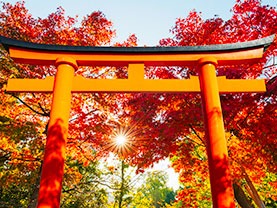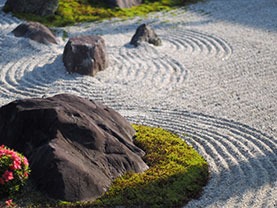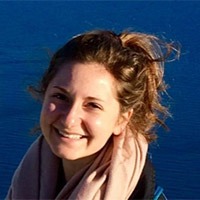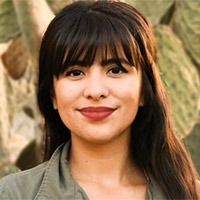
Sophia University
Tokyo, Japan
Program Facts
Program Type: Exchange
Credit Type: Transfer Credit
Terms Available: Academic Year , Spring
GPA: 3.0
Class Eligibility: Graduate , Junior , Senior , Sophomore
Program Open To: UA Students
Language of Instruction: English , Japanese
Application Deadline: Academic Year: March 1 Spring: Oct. 15
Coordinator: Nicole Staab
Explore Sophia University
Sophia University (also known as Jochi Daigaku) is a private university in Tokyo, Japan that is internationally recognized as one of Japan's top universities. With a strong international background, Sophia University attracts top scholars from all over the world and has partnerships with over 150 universities, including the University of Arizona.
Established in 1913, Sophia University attests to the four-hundred-year-old interest of the Jesuit Order in Japan. Its aim is to prepare men and women coming from different countries to recognize in the different cultural traditions of the world and the fundamental unity of the human race and to work for the concrete achievement of that unity.
Exchange students will take Japanese courses along with courses taught in English through the Faculty of Liberal Arts. Courses are available in various disciplines including Asian Studies, International Business, and Social Sciences.
The list of courses below have been approved for transfer, but is not an exhaustive list. You may search for courses in the Sophia University website but will need to submit information in your application to determine if the courses will transfer.
1 Sophia credit = 1 U of A credit
Approved Courses
Anthropology
Nature and Culture
“Culture and Nature” is a course for primarily first and second year students. Its goal is to introduce students to the study of the natural environment, through anthropology and other related fields. The course will cover the basics of ecology, its relationship to human society and culture, and the most pressing problems facing the world today, such as climate change, water and food shortage, and the energy crisis.
Business
Financial Accounting
This course is a continuation of the Introduction to Accounting course. The course enhances the student's understanding of financial accounting concepts, methods and uses with an emphasis on critically analyzing, interpreting and evaluating corporate financial statements and related disclosures at a higher level. Measurements and reporting practices will be presented with a primary focus on international financial reporting standards(IFRS) with some references to the U.S. accounting standards. Prerequisite: successful completion of IBE305 (Introduction to Accounting) or permission from the instructor.
International Finance
This couse is designed to learn international financial transactions with an emphasis on macroeconomic perspectives. First, we learn the determination of exchange rates both in the short run and the long run. We also learn the effects of various exchange rate regimes in light of international macroeconomics. In addition, we will cover a number of current topics, including common currency, currency crises, recent global financial crisis, and the debate on optimal exchange rate policies.
Introduction to Accounting
This is the introductory course on accounting. Often called the language of business, accounting is the system for gathering financial information and communicating it to its users including investors, creditors and management of companies. The course will introduce the basic accounting process: measuring, processing, interpreting and using accounting information for business decision-making.
Management Information Systems
This is an introductory course to various technical and managerial aspects of Information Systems. Course will cover a broad range of examples and case-studies on the organizations/businesses, which have technology and e-Business as their main competitive strength.
Geography
Intro to Human Geography
The purpose of this course is to introduce students to the field of Human Geography. Geography deals with the study of location of people and their activities across the earth’s surface and the interactions between them. This course focuses on the spatial aspects of the population growth and distribution, migrations, cultural differentiation, the urban growth and decline, the diffusion of ideas and innovation, the location of economic activities, the regional development issues. Sub-fields of study will be introduced including population, urban, economic, cultural, and political geography. Human impact on the environment will be considered as well. Human geography is a broad dynamic field that considers the development and the conditions in the contemporary world. Geography is an academic discipline with its own tradition, objectives, and approaches to the changing world. Students will be able to learn to interpret data and trends with a focus on space and time. In addition, attention to mapping and others approaches common to the field of geography will be introduced. The importance of place, environment, boundaries, territory and others will be emphasized. However, the telecommunication technologies with the Internet and social networks are changing the way we live, communicate with others people, and the representation of the space we have. The relations between producers and consumers in the globalized world are changing the trade patterns. Recent viewpoints and current events in the world in relation with the pros and cons of globalization, will be used with specific case studies. Human Geography is certainly a very valuable course to understand the current world we live in. Students will participate as active learners and share as well their own experience (such as living in a different country or different city).
Japanese
Japanese 1
This course is designed for students with no or little background in Japanese, and aims at developing communication skills in Japanese, integrating four skills: speaking, listening, reading, and writing. The emphasis is put on thorough mastery of basic functional grammar of Japanese through oral practice. We will cover Lesson 1 to 12 of Situational Functional Japanese (SFJ).
Japanese M1
This course is designed for students who have some knowledge of basic grammar and have already been familiar with hiragana, katakana and some kanji. It aims to develop language proficiency in Japanese, integrating four skills: speaking, listening, reading, and writing. The emphasis is put on thorough mastery of basic functional grammar of Japanese through oral practice. We will cover Lesson 9 to 20 of Situational Functional Japanese (SFJ).
Japanese Studies
Intensive Japanese 1
This is the intensive Japanese course designed for students who have some knowledge of basic grammar and have already been familiar with writing system: hiragana, katakana and approximately 100 basic kanji. It aims to further remaster basic functional grammar and develop language proficiency in Japanese, integrating four skills: speaking, listening, reading, and writing, in particular, strong emphasis is put on enhancing oral skills necessary for everyday life and communication. The course involves a variety of oral practices and activities, introducing further basic grammar and cultural information in various contexts. The course covers Lesson 9 to 24 of "Situational Functional Japanese" and Lesson 11 to 40 of "Basic Kanji Book". Ten 90-minute classes a week
Intensive Japanese 2
This is the intensive Japanese course designed for students who have already acquired elementary communication skills with completion of basic grammar and writing system including approximately 450 basic kanji. It aims to develop four language skills of the intermediate level. The main focus is put on the development of oral communication skills, while reading and writing skills are equally emphasized to provide and obtain more completed information and to express facts, feelings and opinions. The course involves a variety of oral activities and project works which will help the students understand the issues of Japanese culture and society. The course covers all the lessons of "An Integrated Approach to Intermediate Japanese", lesson 41 to 45 of "Basic Kanji Book" and lesson 1 to 6 of "Intermediate Kanji Book Vol. 1". Ten 90-minute classes a week.
Intensive Japanese 3
This is the intensive Japanese course designed for students who have already acquired intermediate communication skills with intermediate grammar, vocabulary and writing system including approximately 850 kanji. The course covers all the units of "Authentic Japanese: Progressing from Intermediate to Advanced", lesson 7 to 10 of "Intermediate Kanji Book Vol.1", lesson 1, 2, 3 and 6 of "Intermediate Kanji Book Vol.2" and all the lessons of "中上級者のためのブラッシュアップ日本語会話". The significant emphasis is placed on the communication and presentation skills. This course also enhances the reading and writing skills by learning a variety of written style expressions and more complex structures with a wide range of authentic materials on Japanese life, culture, and society. Ten 90-minute classes a week.
Introduction to Japanese Literature
This course focuses on Japanese literature and the art of fiction and poetry. We will introduce selected representative works of Japanese literature, with an emphasis on the modern period (Meiji and after), though a few pre-modern works will be included to examine literary links in the Japanese tradition. While we enjoy a text for its content (i.e. the plot and its social and cultural context), we also want to study how the content is presented (i.e. the form).
Japanese 2
This course is designed for students who have already acquired basic communication skills in Japanese. It aims to further remaster basic functional grammar of Japanese and develop communicative abilities, integrating four skills: speaking, listening, reading, and writing. We will cover Lesson 13 to 24 of Situational Functional Japanese (SFJ).
Japanese 3
This course is designed to develop four language skills, building upon the basis of the elementary level. The main focus is placed on the development of oral communication skills, while reading and writing skills are equally emphasized. The course covers 10 lessons (Lessons 5, & 7 to 15) of the textbook. Five 100-minute classes a week.
Japanese Art in Cross-Cultural Context
This course explores the history of later nineteenth-century Western fascination with Japanese art and design, generally known as Japonisme (or Japanism). It was a widespread international phenomenon, and the course will focus on its manifestations in France, England, and the US. We will study the significance of "Japan" in the work of painters such as Whistler, Monet, van Gogh, and also in graphic and decorative arts. We will furthermore examine the ways in which Japanese visual objects were collected, displayed, and interpreted, as well as the impact of Japonisme on modern Japanese art.
Japanese M2
This course is designed to provide students with intermediate-level grammar, vocabulary, and communication skills, with some review of basic grammar. The aim of the course is to enable students to handle everyday communication in Japanese and to make the transition from basic to intermediate levels of language skills. The course covers lessons 1 to 8 of the textbook. Five 100-minute classes a week.
Japanese M3
This course is designed for students who have completed basic and some intermediate-level grammar to develop further communication skills by integrating four skills. The course covers 7 lessons (Lessons 8 to 15 of the textbook. Four 100-minute classes a week.
Japanese Religions
This course traces the development and cultural impact of the diverse religious traditions of Japan. It will focus on the role that folk traditions, Buddhism, Shintō and New Religious Movements have had in the formation of Japanese culture, as well as the ways in which these traditions have adapted to the unique social and historical circumstances found in Japan.
Modern Japan
This course will explore issues of memory-making and memory-shaping in modern Japan. After a survey of theories of historical and social memory, we will analyze the main institutions of memory and commemoration in modern Japan, their functions and historical development, as well as important Japanese “realms of memory”, their representation in Japanese culture and controversies surrounding memorialization projects in Japanese society and politics. Apart from examining case studies of Japanese memory institutions, we will also take a comparative look at controversies about historical memory in other countries, above all in Germany, South Korea, Spain, France and Italy.
Samurai in Literature and History
In contemporary Japan (and around the world) the word “samurai” conjures up images both exotic and quotidian. On the one hand, samurai live in the cultural memory of a distant past that is colored by romantic notions of violence, masculinity, loyalty, and death. On the other hand, samurai are a familiar part of day-to-day life, appearing in everything from advertisements for cold medicine, to businessman self-help books, and even ultra-nationalist propaganda. The goal of this course is to explore the rich discursive history of this popular cultural icon. Beginning with the rise of warrior culture in the 12th century and ending with the samurai legacy in post-war Japan, discussions will focus on the shifting representations of the samurai as a cultural symbol that was continuously re-imagined and reinterpreted with each new period in history.
Philosophy
Thinking Processes
This course is designed to develop students’ critical thinking and to introduce basic problems and issues underlying the various academic disciplines. It provides an introduction to the analysis of thought and value and is based on the idea that students can cultivate critical faculties by becoming more aware of the thinking process itself. Analytical skills will be developed through close engagement with a variety of texts, a process that involves careful reading, thoughtful writing, and probing discussion.
Sociology
Intro to Sociology
Welcome! This course introduces you to the “sociological imagination,” a way of viewing events, relations, and social phenomena that form the fabric of our lives and much of the substance of our history. It surveys the main concerns, intellectual threads, and key concepts of sociology. Class-time consists of lectures, activities, and discussions.
Location
Sophia University is located in Tokyo, the capital city of Japan, and is home to 11,400 undergraduate and graduate students. The city of Tokyo presents a complex urban landscape, laced with layer upon layer of railways and highways with a massive conglomeration of buildings in between. Spring (March to May) and autumn (September to November) are the mildest seasons. Tokyo has relatively mild winters and hot, humid summers. Rain is more common in June and September than in other months.
Good to Know:
LGBTQ+ Equality Index rating: Japan rates 55/100 (with 100 being the most equal) on Equaldex’s LGBTQ+ Equality Index.
Global Peace Index rating: Japan ranks 9/163 in the Global Peace Index. The lower the score, the more peaceful the country.
Languages spoken: Japanese
Housing
Sophia University assists exchange students with housing. All Sophia associated housings are off-campus, and commuting time to Sohpia Yotsuya campus from all housings is 45-90 minutes. The residences listed below are operated and managed by Sophia University, but are considered off-campus due to the commute. Alternate housing can be arranged independently by students.
Please visit here for more info about the following housing options:
- Sophia Soshigaya International House
- Sophia-Arrupe International Residence
- Azalea House
- DK House Matsudo
- DK House Shinkoiwa
- DK House Tokyo Nerima
- FlatShare SHIN-Otsuka Campus
- Kasai International House (female-only)
- Social Residence Higashi Koganei
- Wakeijuku (male-only, meals included)
Semester Dates
- This program may require a quarantine upon arrival in Japan
- Please check the Sophia University Academic Calendar for the most accurate program dates.
Semester Cost
- $50 Study Abroad Application Fee
- Mandatory Geo Blue International Health Insurance at a rate of $3 a day (approximately $360 a semester)
- You pay Main Campus UA Tuition & Fees to do an exchange and receive all of the financial aid you use on main campus.
- To learn more about how financial aid is applied to studying abroad, please see the official OSFA website.
- Other estimated costs include but not limited to housing, transportation (air & local), visa, meals, books and supplies
- UA Study Abroad scholarships are available based on eligibility
Request More Information
Please enter your contact information and a member of the Study Abroad team will contact you.










